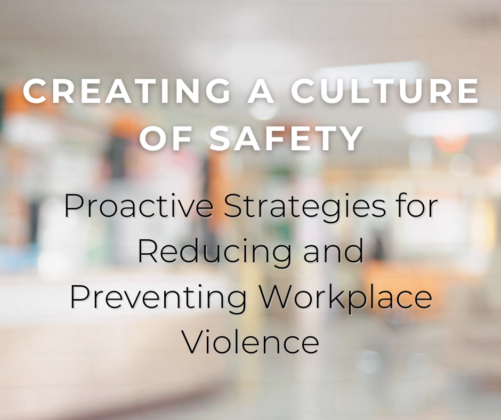SDAHO recognizes the importance of supporting our members in WPV and has been awarded the South Dakota Medicare Rural Hospital Flexibility grant to aid in gathering member feedback, providing in-person training for critical access hospitals (CAH), and providing resources for all SDAHO members.
SDAHO will be hosting an in-person training event, Creating a Culture of Safety: Proactive Strategies for Reducing and Preventing Workplace Violence, on April 23 from 10:00am to 3:00pm CST in Chamberlain, South Dakota. This is an invitation-only event exclusively for Critical Access Hospitals (CAHs) in South Dakota. Each CAH can send a maximum of two staff members to attend. If you have not received the complimentary registration code provided to each CAH, please email info@sdaho.org to obtain it.
Some of the topics to be covered during this in-person event, include:
- Identify Risk Factors: Recognize and assess the risk factors contributing to workplace violence, including patient-related stressors and high-pressure situations.
- Implement Security Protocols: Develop and implement robust security protocols and access controls to minimize the risk of violent incidents.
- Strengthen Communication Skills: Enhance communication skills to effectively navigate and mediate conflicts, promoting a positive and respectful work environment.
- Create a Safe Physical Environment: Design hospital spaces and layouts that prioritize safety, reducing opportunities for violence and enhancing staff security.
- Establish Emergency Response Plans: Formulate comprehensive emergency response plans that guide staff in effectively managing and containing violent incidents.
- Address Trauma-Informed Care: Integrate trauma-informed care principles into workplace practices to provide sensitive and supportive care to patients, minimizing triggers.
If you work in a South Dakota Critical Access Hospital and are interested in attending the in-person event, please click here.
Acknowledgment and Disclaimer: This project is supported by the Health Resources and Services Administration (HRSA) of the U.S. Department of Health and Human Services (HHS) as part of an award totaling $866,675 with 0% percentage financed with non-governmental sources. The contents are those of the author(s) and do not necessarily represent the official views of, nor an endorsement, by HRSA, HHS, or the U.S. Government.




